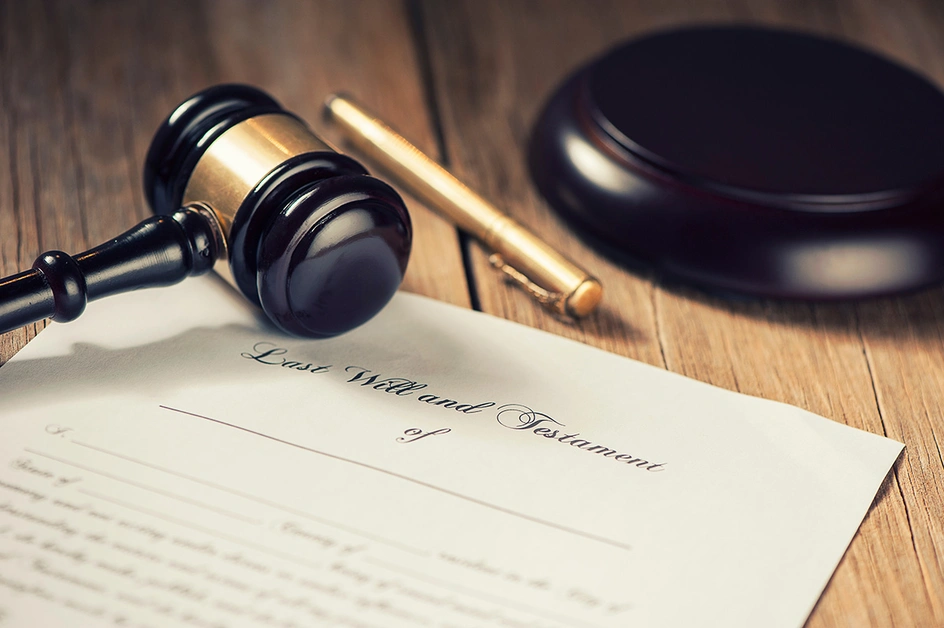Everything You Should Know About Legal Heir Certificate

If someone in your family dies and you are a legitimate heir, this article will help you to claim what is rightfully yours.
The government allocates a legal heir certificate when a family member dies without creating a will. A legal heir certificate is an essential record that empowers the deceased's legitimate successors. After getting a death certification from the municipality, the beneficiaries can apply for the legal heir record to assert their rights towards the demised person's property and dues.
A legal heir certificate is to specify a connection for assertions relating to insurance, retirement benefits, pension, state and federal government divisions, government undertakings, and so on. Only one legal beneficiary can ask for the certificate, and they must contain the titles of other possible legal successors on the application form.
What Can You Do With a Legal Heir Certificate?
A legal heir certificate recognises the appropriate heir, who can assert the assets/properties of the deceased family member. All qualified beneficiaries must have this certificate to apply a claim over the deceased person's possessions.
Why Do You Need a Legal Hire Certificate?
A legal heir certificate is usually for the following purpose:
- For repositioning possessions and assets of the demised person to his heirs.
- For asserting insurance compensation.
- For authorising and processing the family allowance of the deceased worker.
- To obtain privileges such as provident fund, gratuity, etc., from the management
- To receive salary arrears of the demised, state or Central government worker.
- To acquire a job based on compassionate arrangements.
Typically, for any property investment or registration, the buyer should ask a legal heir certificate to verify the ownership of the property. There can be examples where there are several legal successors for an ancestral asset. In such matters, all legal beneficiaries must sign the deed of conveyance, offering their consent to evade any litigations.
Who are the Beneficiaries in the Case of a Legal Heir Certificate?
The following individuals are assumed legal successors and can assert a legal heir certificate under the Indian rules:
- Spouse of the demised
- Children of the demised(son/ daughter)
- Parents of the demised
Strategy to Acquire a Legal Heir Certificate
A legal heir certificate can get acquired by approaching the area/taluk Thasildhar or from the corporation municipality office of the particular area and the pertinent civil court. This certificate names all legal beneficiaries of the demised person and is allocated only after a proper investigation. The process for getting a legal heir certificate is given below:
- The legitimate successor of the demised person must approach the district court in the respective location and request for the legal heir certificate application. After filling out the application, the applicant submits the signed application to the concerned authority. This application includes the titles of all the legal successors, their connection with the deceased, and the family members' addresses.
- All the needed records, including the demised person's death certificate, should be affixed to the application. (Death certificate must get received from the municipal corporation office).
- An affidavit or a self-declaration on stamp paper must get presented along with the application.
- The revenue inspector officer executes an examination and concludes the investigation.
- Once the investigation gets completed successfully, the authorised officer administers the Legal heir certificate.
The process of receiving a legal heir certificate typically takes 30 days. If there is an unwarranted delay in obtaining this certificate or the concerned authorities fail to react, you should go to the Revenue Division Officer (RDO)/sub-collector.
Documents Needed for Acquiring a Legal Heir Certificate
To receive a legal heir certificate, the following is the list of records needed:
- Duly signed application
- Identity/address verification of the applicant
- Death certificate of the demised
- Date of birth proof of all legal beneficiaries
- A self-undertaking testimony
- Address proof of the demised
Distinction Between a Legal Heir Certificate and Succession Certificate
If the demised person is a government employee, then the legal heir certificate is allocated for the backing of family pension or to get appointments on the concerned reason. A legal heir certificate helps to transfer possessions and movable and immovable assets. At the same time, a succession certificate is needed when someone inherits any immovable or movable possessions under the country's different property laws. Most of these problems come under the Hindu Succession Act. At the same time, others are part of the community acts or the Indian Succession Act. Problems need to be known in the right stand for both classes.
Tahsildar of the district allocates legal heir certificates to determine a certain demised person living successors, and the court issues the succession certificate to the legal heirs of a demised person.
For the succession certificate, 3% of the property's total worth will be assessed. You will need Rs.2 for a stamp and Rs.20 for stamp paper for the affidavit to get a legal heir certificate.
Legal heir certificates and succession certificates are entirely diverse. If the head or a family member dies, the next immediate legal heir of the demised, such as wife/husband/son/daughter/mother, can apply for the Succession Certificate. This certificate can transfer house tax, electricity connection, filing of IT returns, telephone connection/patta transfer, bank account, etc.
How Does Legal Heir File ITRs?
On behalf of the demised owner, their legal successors must file an ITR and pay the computed income tax. The following are the actions to take:
- Visit the income tax e-filing website.
- Log in with your account details if you are already a user. If not, select the 'Register Yourself' option to set up a new account. Conclude the registration process by delivering all essential details.
- After successfully logging in and registering yourself as a proxy, select "My Account".
- Pick a new request from the drop-down box under the request type option.
- Choose to register yourself from the drop-down box in the register as a representative section on behalf of a deceased person.
- Choose the deceased's inheritance from the drop-down box in the category to register section.
- You will be redirected to an external link if you choose the proceed option.
- Deliver all relevant data, such as the name of the estate, the deceased's PAN, and the deceased's date of incorporation.
- Create a zip file with documents such as a self-attested copy of the legal heir's PAN card, a copy of the death certificate, the deceased person's PAN card, an affidavit in the presence of a Notary Public, or the legal heir certificate.
- After uploading your documents, select the submit button to send your proposal to the e-Filing Administrator.
Conclusion
A legal heir certificate must get received to transfer the deceased's assets to their legal heir/s in case of the sudden death of a family member. A legal heir certificate is essential to confirm the relationship between the dead and their legal heir/s. Once the death certificate gets received from the municipality corporation, the beneficiaries can apply for this legal heir certificate to assert their right over the deceased person's assets and privileges. Typically, lawyers help make and register a legal heir certificate.









